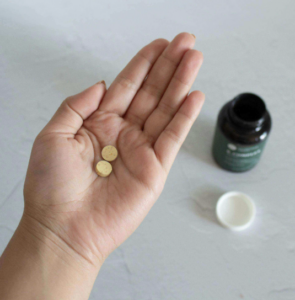Ever wish for more hours in your day? What if you could get more years in your life?
While we’re pretty much stuck with a maximum of 24 hours per day, our life spans may not be so fixed in stone. What if you could add just a few new habits, make a couple of lifestyle choices, and maybe get a few more years tacked on to your life in return?
And not just years, but good, healthy, vibrant years?
You likely know the usual ways already: eat lots of fruits and veggies, sleep enough, drink enough water, exercise, stay calm, don’t smoke, spend time with others. All very good ideas. But here are six ways you can increase life expectancy that you may not know about.
One: Increase life expectancy by having more sex

According to The Sex MD – physician and sex therapist Madeleine Castellanos – time between the sheets can add years to your life. Regular sex boosts immunity, improves our cardiovascular system, sleep, and blood pressure. It’s good for emotional health – even eyesight, says the doc. Intimacy relieves the sensation of pain, which can ease depression.
“Human beings are designed to respond to physical contact,
to eye-to-eye contact; it’s what makes us thrive as babies and as adults.”
If your libido is a bit limp these days, try imagining sex, Dr. Castellanos says; remembering past erotic moments or engaging in fantasy can help revive desire.
Two: Increase life expectancy by learning
Curiosity, exploration, and learning can have enormous health benefits. Taking classes at your local college or community center gets you out and interacting with other people, which is key to longevity. Studying and learning something new like a foreign language or musical instrument may help ward off depression and anxiety, even provide some protection against Alzheimer’s and dementia.
Learning doesn’t have to be in a formal setting to provide benefits. For example, reading for just six minutes can reduce stress by 68%, says John Coleman in the Harvard Business Review.
Three: Increase life expectancy by serving others
Turns out, doing good for others can do you a whole lot of good as well: lower risk of hypertension, better brain function, less risk of depression or physical disability, more satisfaction with life. Those advantages are particularly significant for older adults.
The more you volunteer, it seems, the better the impact on your own health. The Corporation for National and Community Service says those who spend at least 100 hours a year in volunteer service were “most likely to exhibit positive health outcomes.”
Four: Increase life expectancy by flossing
 Brushing, flossing, and seeing the dentist regularly are associated with greater longevity, says the Leisure World Cohort Study. According to the study, brushing before bed, flossing daily, and seeing the dentist regularly all reduced risk of death. And the more teeth you keep, the better, the study indicates.
Brushing, flossing, and seeing the dentist regularly are associated with greater longevity, says the Leisure World Cohort Study. According to the study, brushing before bed, flossing daily, and seeing the dentist regularly all reduced risk of death. And the more teeth you keep, the better, the study indicates.
What’s the connection? One problem is the increase in infections; the bacteria in your mouth can trigger an immune response, causing chronic inflammation, and that can cause arteries to swell. Poor oral hygiene is linked with heart disease (increase in plaque), stroke, atherosclerosis, pneumonia, other respiratory disease, and mortality. Those with fewer teeth may not be able to chew healthy, high fiber foods comfortably, impacting diet.
Five: Increase life expectancy by living near the park
Green spaces keep us healthier, as pretty much anyone lucky enough to live near a park can tell you. Trees and other green and growing things can reduce pollution, noise, and heat, cheer us up, and encourage us to get out and be active. And women who live in green areas live longer.
And the deeper the greens, the better: a few trees is nice, but the larger the green space, the better the outcomes for our health. Populations who lived near green spaces – and thus had the greatest exposure – had the largest reductions in heart, respiratory, and kidney disease, and lung cancer deaths.
If you can’t live on the park, spend as much time in nature as you can. Encourage city planners to allow increased vegetation. If you live in a city, find out if there’s a P-Patch program near you.
Six: Increase life expectancy by getting a dog
Correction to the old adage: dogs are humans’ best friends. A recent study done in Sweden with more than 34,000 participants showed that dog ownership was associated with lower risk of death. If that’s not friendship, what is?
Dogs are particularly good for our hearts. They require regular exercise, which means we get up and out to give it, even when the weather is uninviting; they also invite social interaction by being irresistibly cute. For those who already have health concerns, dogs lead to better outcomes and recovery, reducing the risk of death.
Dogs calm us, give us a reason to get up in the morning, and are ridiculously loveable (and love is really good for us).
So yes, eat your broccoli, walk 30 minutes a day, and hydrate, but also go for a hike, floss, get frisky, and finally sign up for those French (or French horn) lessons if you want to add a few years to your life.
Now, if you’ll excuse me, I’m taking my dog to the park.







